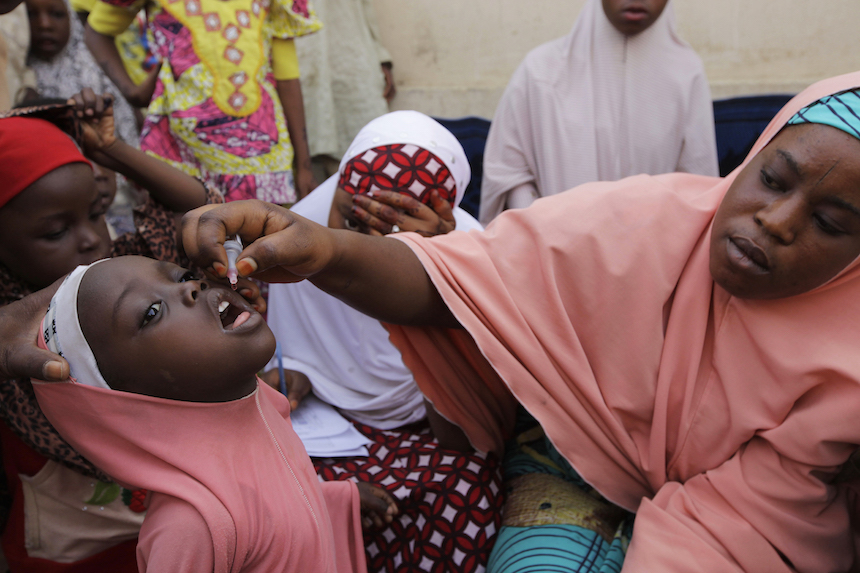
This week, as part of the Global Polio Eradication Initiative (GPEI), more than 190,000 polio vaccinators in thirteen countries across west and central Africa plan to immunize more than 116 million children to tackle the last remaining stronghold of polio on the continent. The synchronized vaccination campaign, one of the largest of its kind ever implemented in Africa, is part of urgent measures to permanently stop polio on the continent.
All children under five years of age in the thirteen countries – Benin, Cameroon, Central African Republic, Chad, Côte d’Ivoire, Democratic Republic of Congo, Guinea, Liberia, Mali, Mauritania, Niger, Nigeria, and Sierra Leone – will be simultaneously immunized in a coordinated effort to raise childhood immunity to polio across the continent. According to the World Health Organization (WHO), the volunteers will deliver bivalent oral polio vaccine (bOPV) to every house across all cities, towns, and villages of the 13 countries. In August 2016, four children were paralyzed by the disease in security-compromised areas in Borno state, north-eastern Nigeria, widely considered to be the only place on the continent where the virus maintains its grip.
“Twenty years ago, Nelson Mandela launched the pan-African ‘Kick Polio Out of Africa’ campaign,” said Dr Matshidiso Moeti, WHO Regional Director for Africa. “At that time, every single country on the continent was endemic to polio, and every year, more than 75 000 children were paralyzed for life by this terrible disease. Thanks to the dedication of governments, communities, parents and health workers, this disease is now beaten back to this final reservoir.”
Volunteers will work up to twelve hours per day in vaccination teams equipped with special carrier bags, filled with ice packs to ensure the vaccines remain below the required 8°C. Temperatures in the campaign countries can often reach above 40°C.
Bivalent oral polio vaccine (bOPV) immunizes against two of the three wild poliovirus serotypes: 1 and 3. Wild poliovirus type 2 has been eradicated.
The Global Polio Eradication Initiative (GPEI) is led by national governments and spearheaded by the World Health Organization (WHO), Rotary International, the US Centers for Disease Control and Prevention (CDC), and the United Nations Children’s Fund (UNICEF), with the support of the Bill & Melinda Gates Foundation. Since its launch at the World Health Assembly in 1988, the GPEI has reduced the global incidence of polio by more than 99%. The GPEI receives financial support from governments of countries affected by polio; private sector foundations, donor governments, multilateral organizations, private individuals, humanitarian and nongovernmental organizations and corporate partners.


